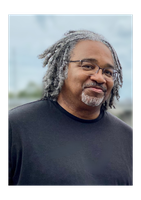Advancing Racial Equity & Generational Wealth
LISC Jacksonville is rethinking what it takes to build a just and equitable society – a mission more crucial now than ever. To confront the racial wealth, health, and opportunity disparities in America and particularly in Northeast Florida, LISC Jacksonville launched its Family Wealth Creation initiative. This mirrors LISC National’s impactful Project 10X initiative, aimed to directly address the fact that the net worth of the average white family is 10 times that of the average Black family. The wealth gap is indicative of other deep-rooted issues, from poorer health and shorter lifespans to increased risks of eviction and incarceration among people of color.
The Issue
Homeownership is a key driver of family wealth inequity. Resulting from decades of unjust policies and practices, Black Americans have home ownership at rates 30% below white Americans - the lowest level in 50 years. Even when Black families overcome barriers to homeownership, they face further challenges, including discriminatory devaluation of homes by appraisers and tax assessors, and an inheritance gap that significantly contributes to land and property loss among Black Americans.
A long history of discriminatory homeownership policies has exacerbated the racial wealth gap. Racial covenants excluded Black families from buying home in white neighborhoods; the GI Bill largely financed housing for only white veterans; and redlining blocked Black neighborhoods from government-backed loans (read more about redlining and its impacts here). Along with these inequities in homeownership, Black-owned homes are also more likely to be devalued by appraisers and tax assessors (read more here). Devaluation severely impacts Black homeowners in the short and long term, making it especially challenging to maintain properties in good condition, leverage home equity for business ventures or education, and build wealth to pass on to future generations.
- Homes in Black neighborhoods are valued 23% lower than similar homes in predominantly white areas, amounting to $48,000 per home in some cases and $156 billion in lost equity for Black families.
- Jacksonville ranks #3 in the U.S. for the devaluation of homes in Black neighborhoods.
Our Approach
LISC Jacksonville’s Family Wealth Creation initiative interventions aim to improve several impactful areas of homeownership among Black families.
One focus includes addressing Heirs' Properties in specific communities in Jacksonville. Starting in the Durkeeville and North Riverside areas, LISC Jacksonville and its partners, including Three Rivers Legal Services have identified homes in which the current owners do not have clear title due to inadequate estate planning or probate administration by the prior family member and owner. The result is that current owners – who are typically children or grandchildren of the prior owner – are unable to obtain home improvement loans, reap homestead exemption benefits, or leverage the home equity to start a business or pay for education. LISC and its partners aid homeowners in obtaining clear title and developing an estate plan to preserve their assets for generations to come.
Further efforts in support of wealth creation and asset preservation efforts include utilizing LISC Jacksonville’s Financial Opportunity Centers and facilitating home repair programs. LISC collaborates with partners, including the University of Florida, to re-evaluate appraisal policies in an effort to enact systemic change in appraisal practices that perpetuate the history of devalued Black-owned assets.
By engaging the community members and policymakers in these issues and creating solutions, LISC Jacksonville anticipates the preservation $100 million in housing value and $50 million in positive home revaluation in Black neighborhoods by 2030. This year alone, LISC Jacksonville will preserve and sustain approximately $1 million in assessed home values in two primarily Black communities.
Read more about LISC Jacksonville's Family Wealth Creation initiatives:
- Heirs' Property in Jacksonville: Information and Resources
- Redlining in Jacksonville: Information and Resources
